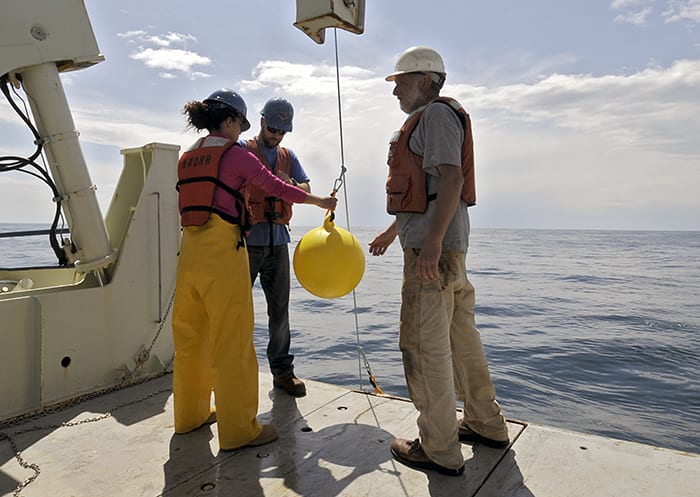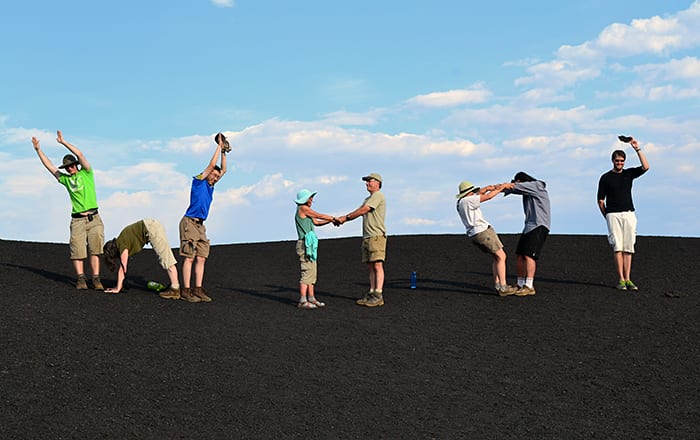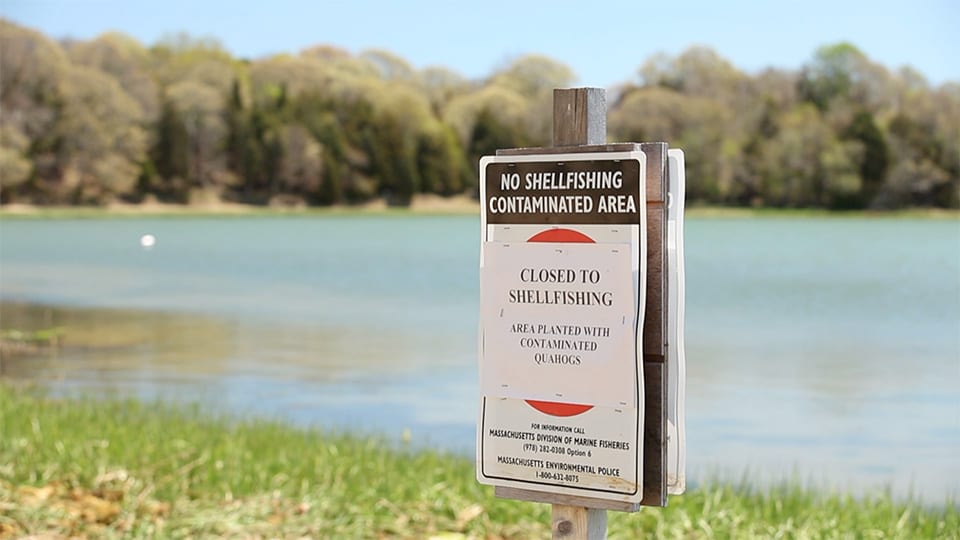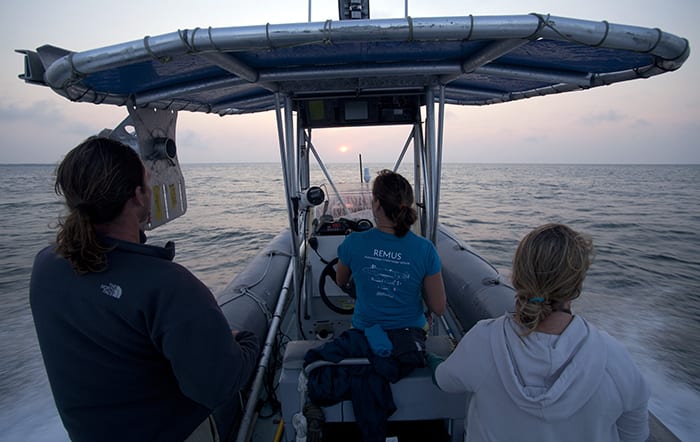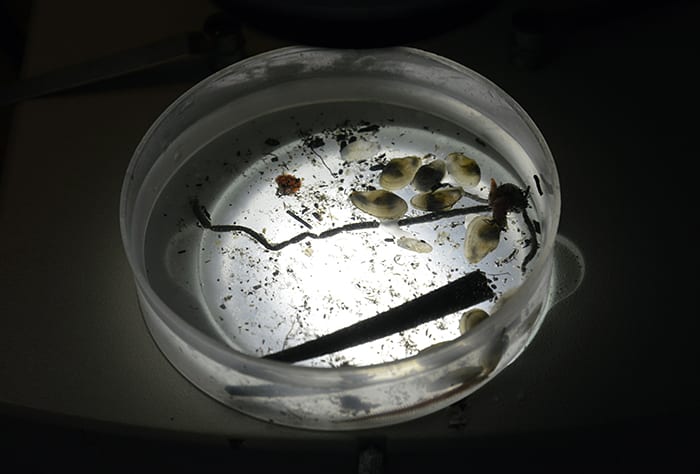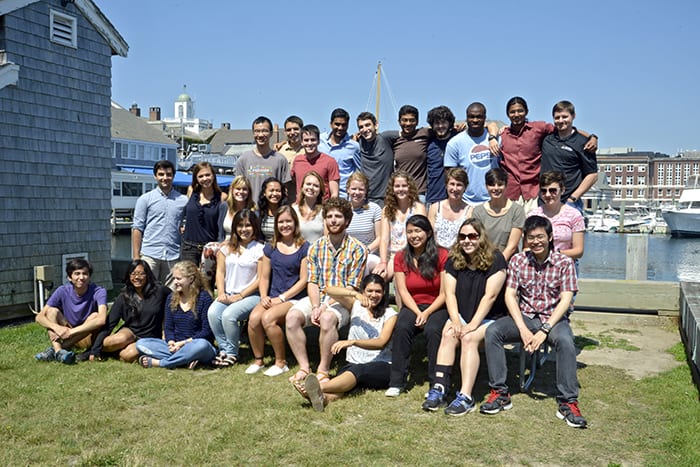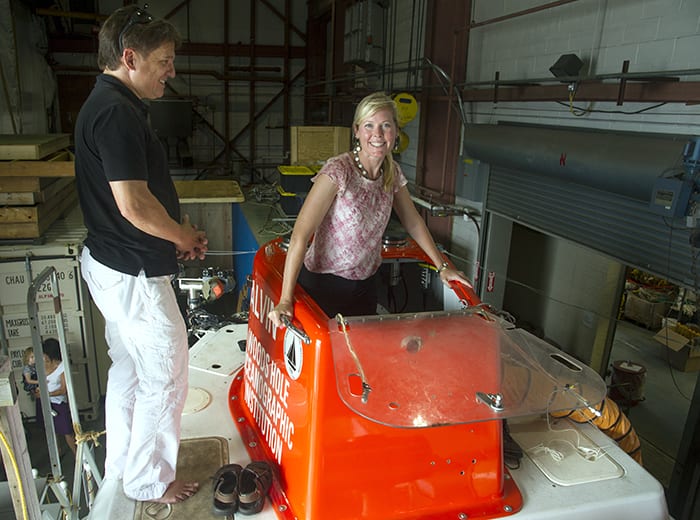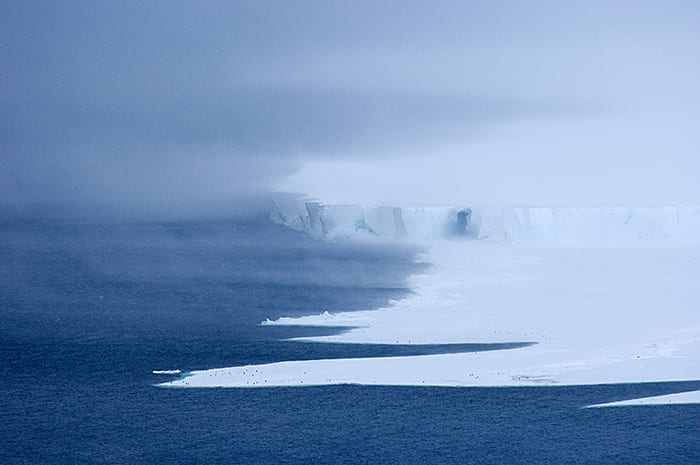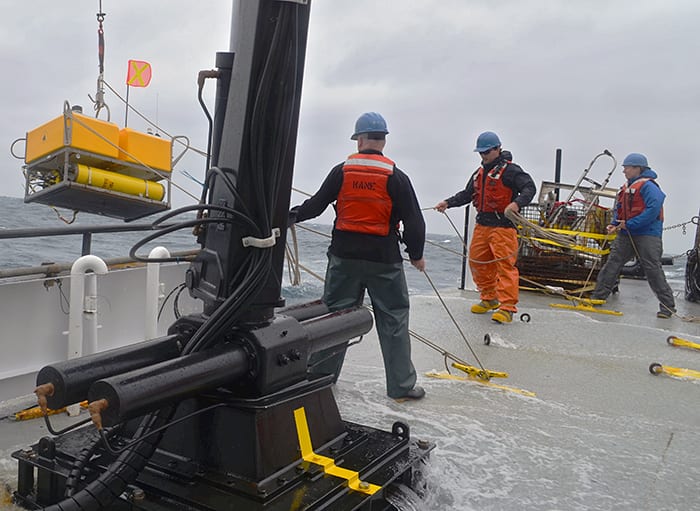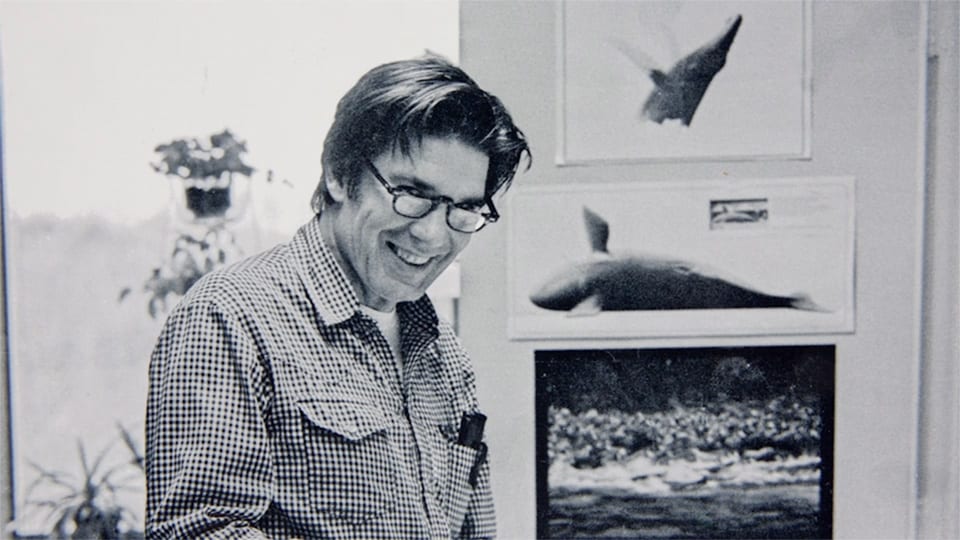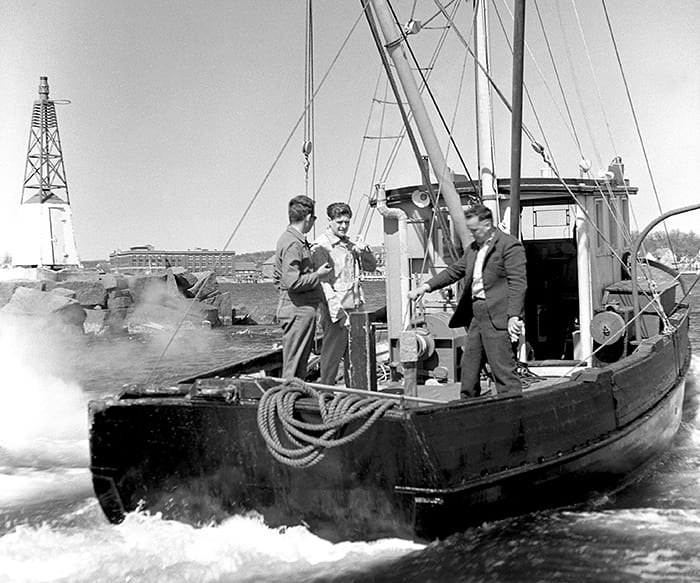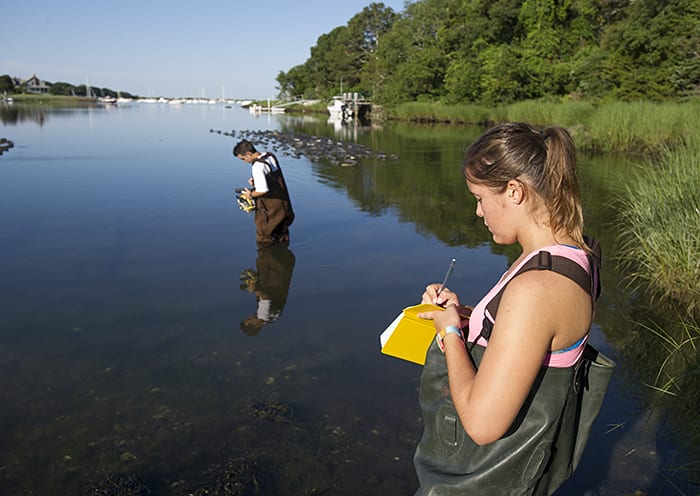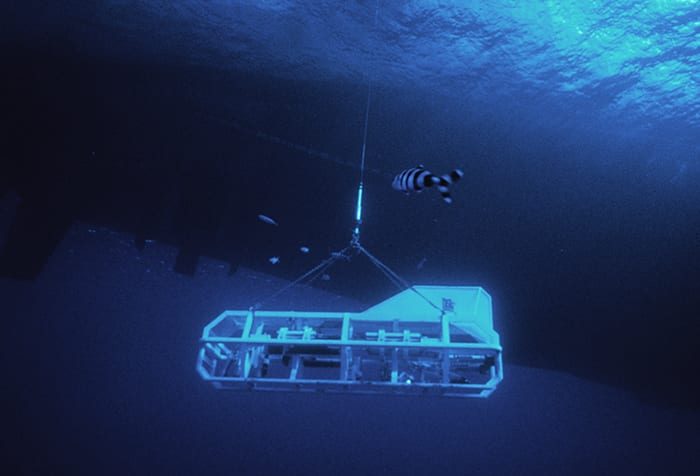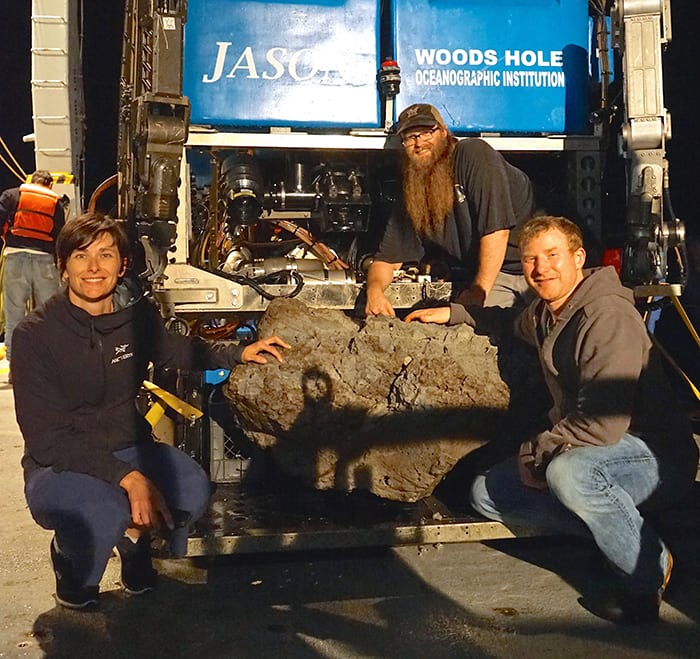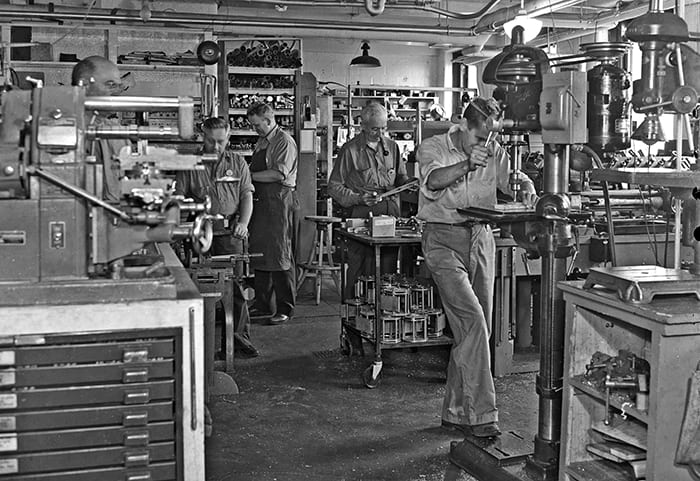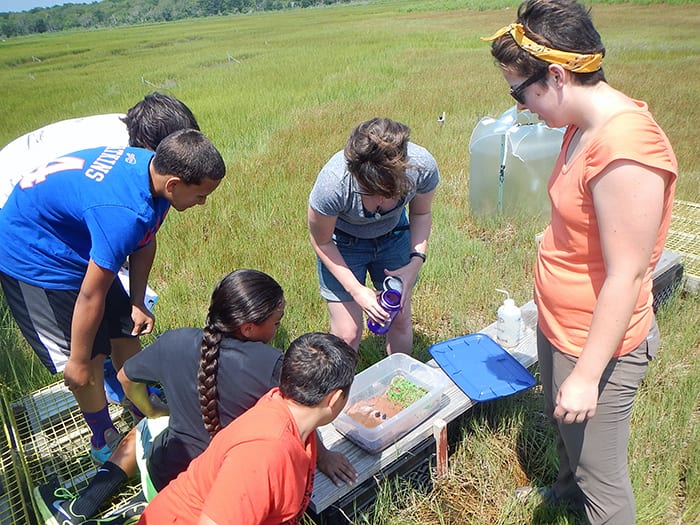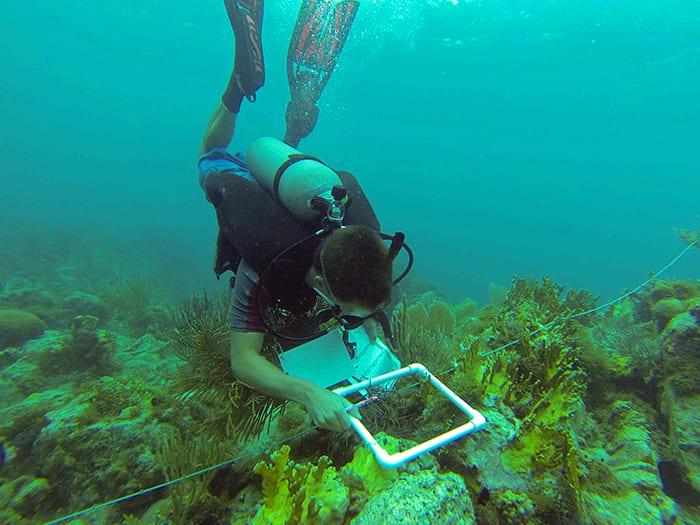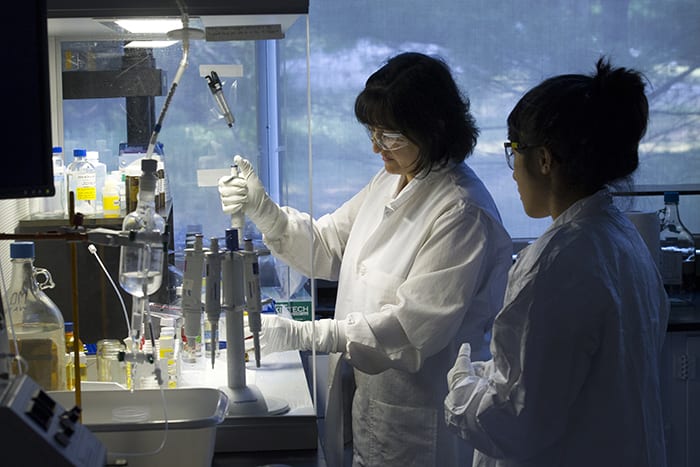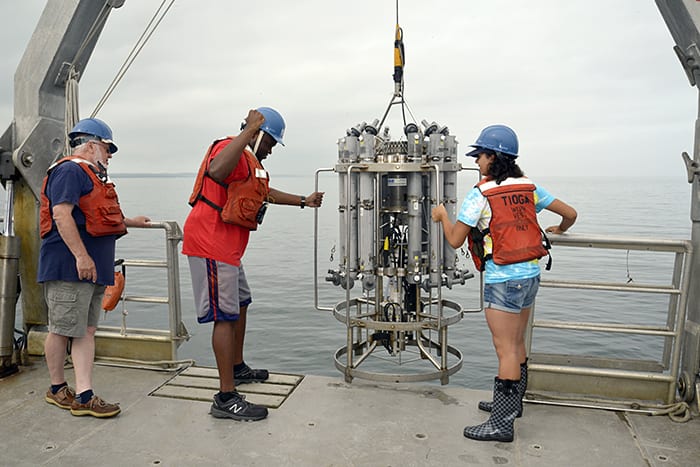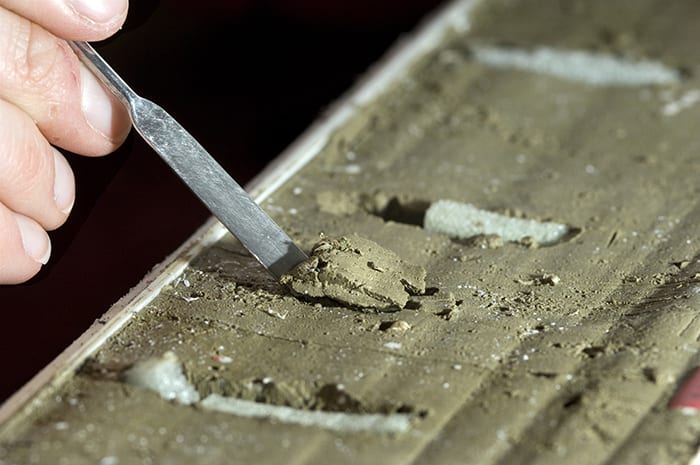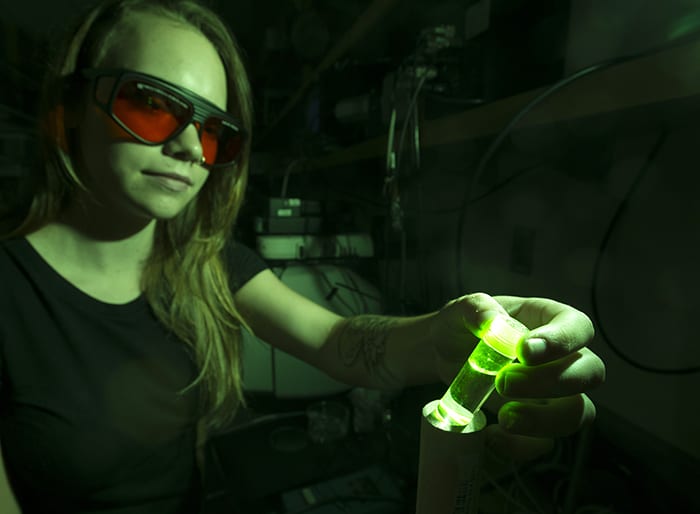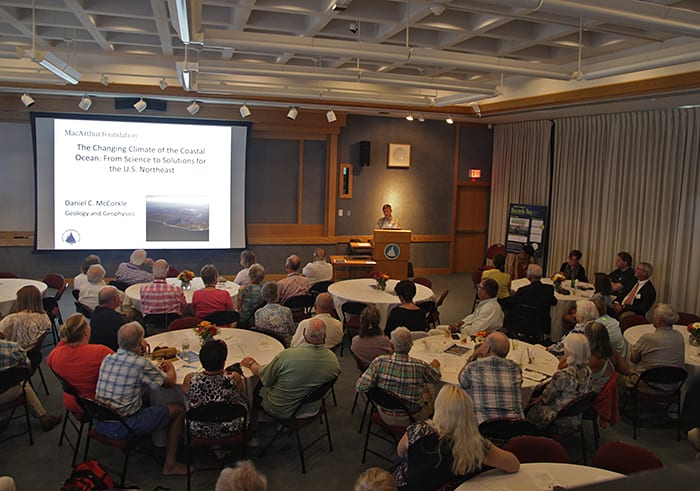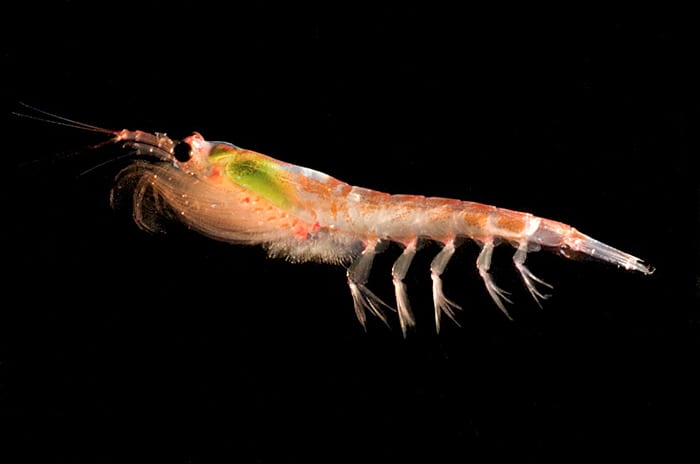Multimedia Items
Go Set a Sediment Trap
Bethanie Edwards, Justin Ossolinski and Peter Liarikos (left to right) prepare the float on a sediment trap for deployment from the R/V Knorr. While steaming from Woods Hole to St.…
Read MoreCoral Clouds
WHOI senior scientist Konrad Hughen swims through dense clouds of bluestreak fusiliers in the Chagos Marine Reserve, the world’s largest no-take marine reserve. The Khaled bin Sultan Living Oceans Foundation’s…
Read MoreShowing WHOI Are
A group of faculty and students on a trip to a lava field in Idaho’s Craters of the Moon National Monument created a human “WHOI” choreographed by former postdoctoral investigator…
Read MoreSetting a Watchman for Harmful Algal Blooms
By Daniel Cojanu, Elise Hugus :: Originally published online September 9, 2015
Read MoreEarly to Rise
A team that included Mike Dodge, WHOI engineer Amy Kukulya, and NOAA Northeast Fisheries Science Center biologist Kara Dodge (left to right) headed out of Woods Hole at sunrise recently…
Read MoreLife in Seafloor Mud
A petri dish holds seafloor sediment from Buzzards Bay, Mass. Each year WHOI Summer Student Fellows spend a day aboard R/V Tioga learning about oceanographic instruments and sampling. This year’s…
Read MoreBack to School
WHOI’s 2015 class of Summer Student Fellows may be gone (back to school), but they are certainly not forgotten. This year’s group of 32 undergraduates included seven international students from India,…
Read MoreHitting a High Note
Boston Pops Conductor Keith Lockhart watches as his wife, Emiley Z. Lockhart, climbs into HOV Alvin during a tour last month. The couple visited WHOI with their friend, NASA astronaut Sunita…
Read MoreSouthern Snow Blowers
In Antarctica, fierce winds blow plumes of snow out to sea, obscuring most of the 400 mile-long Ross Ice Shelf, Antarctica’s largest ice shelf. As the global climate warms, polar…
Read MoreDistant Rumblings
Recent seismic activity along the Cascadia Subduction Zone has renewed attention on the hazard it poses to residents from Vancouver to Portland. The Ocean Bottom Seismograph Instrument Pool which includes researchers from…
Read MoreThe Man Who Opened Our Ears to the Ocean
By Amanda Kowalski, Ari Daniel :: Originally published online September 3, 2015
Read MoreProud Lineage
Since its beginning, WHOI has maintained a vessel used by researchers to study the coastal ocean or to test equipment in local waters. Today, that job is held by R/V Tioga…
Read MoreToo Much of a Good Thing
Summer Student Fellow Claudia Mazur, of Mount Holyoke College (foreground), together with WHOI guest student Alec Cobban sampled sediments under oyster aquaculture sites in West Falmouth Harbor this summer. Both were working in WHOI…
Read MoreArgo and Titanic
Thirty years ago today, a group of scientists, engineers, and technicians aboard the research vessel Knorr discovered the final resting place of RMS Titanic. The team found the wreck with…
Read MorePumice Puzzle
On July 31, 2012, a passenger on a commercial airliner spotted what appeared to a large raft of pumice in the Pacific Ocean. Satellite imagery revealed the likely source—the Havre…
Read MorePrecision Work
In this 1946 photograph, five men work in the WHOI machine shop that was then located on the ground floor of the Bigelow Laboratory. Ralph Bodman is behind the machine…
Read MoreTraditional Relationships
A group from WHOI’s Coastal Systems Group, including Katie Castagno (grey shirt) and Michelle O’Donnell (far right), led a field lesson this summer for Mashpee Wampanoag students as part of…
Read MoreEavesdropping on the Reefs
In two recent studies, WHOI scientists demonstrated an new way to assess the health of coral reefs and to monitor threats on remote atolls: They used low-cost underwater recorders designed…
Read MoreMobilized Mercury
WHOI Postdoctoral Scholar Priya Ganguli worked with Woods Hole Partnership Education Program (PEP) student Kelly Luis this summer to test groundwater from nearby Mosquito Creek for methylmercury. Septic systems in…
Read MoreWatchful Eye
Instructor Bruce Tripp (left) watched WHOI Summer Student Fellows Jerry Fontus (Georgia Institute of Technology) and Julia Lanoue (Brown University) as they deployed a CTD water sampling rosette off the…
Read MoreWritten in Mud
Seafloor sediments often contain valuable clues to the nature of Earth’s climate in the distant past. Scientists collect long cores of sediment, sometimes from great depth, and then split them…
Read MoreLighting the Way
Woods Hole PEP (Partnership Education Program) student Ellin Rittler from the University of San Francisco worked with WHOI biologist Scott Gallager this summer to examine the use of Raman spectroscopy…
Read MoreLocal Science, Global Impacts
WHOI Geology and Geophysics Chair Dan McCorkle spoke to a group of more than 100 WHOI Associates at the annual Afternoon of Science in July. McCorkle described a project funded…
Read MoreKrill Close-up
In 2009, former MIT-WHOI Joint Program graduate student Andrew McDonnell captured this image of an Antarctic krill off the West Antarctic Peninsula. McDonnell was on a cruise with WHOI chemist Ken…
Read More
